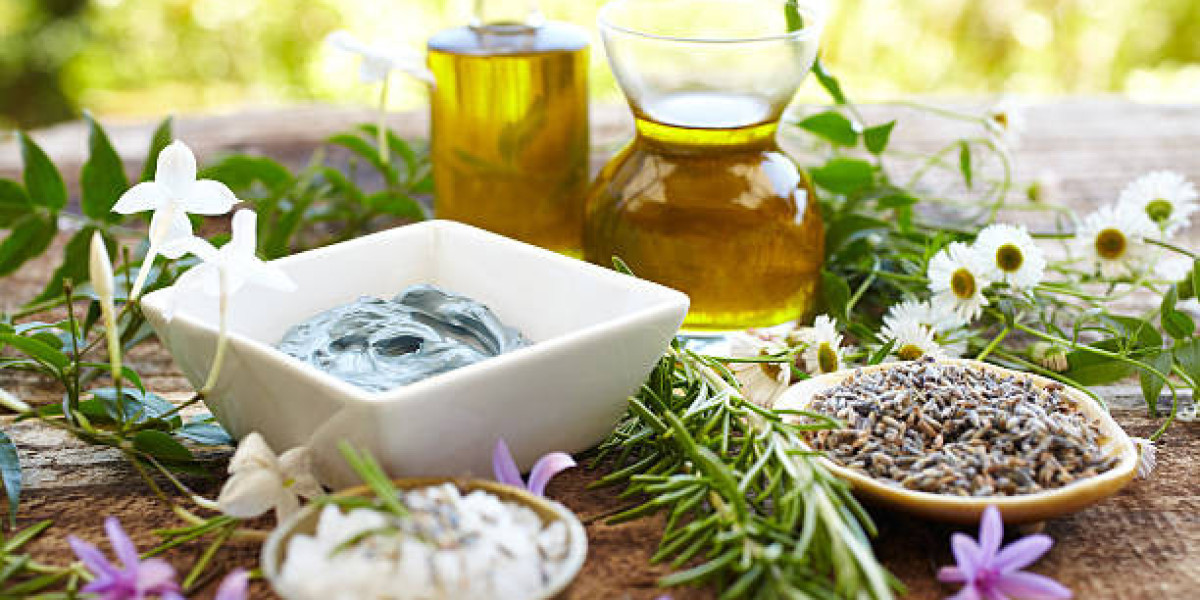What Are Herbal Beauty Products?
Herbal beauty products are made using plant-based ingredients such as herbs, roots, flowers, and essential oils. These products are free from harmful chemicals, synthetic fragrances, and parabens, making them a healthier alternative for skin, hair, and overall wellness. Common herbal ingredients include aloe vera, neem, turmeric, tulsi, and sandalwood—each known for their healing and nourishing properties.
Market Overview and Growth Drivers
The Herbal Beauty Products Market has been expanding steadily, driven by rising consumer awareness about natural ingredients and a growing preference for cruelty-free and eco-friendly products. According to industry reports, the market is expected to grow at a robust pace over the next few years, fueled by the demand for safer alternatives to chemical-laden beauty products.
In 2023, Herbal Beauty Products Market Size was expected to be worth USD 101.8 billion. The herbal beauty products market is expected to expand at a compound annual growth rate (CAGR) of 7.20% from 2024 to 2032, from USD 109.1 billion in 2024 to USD 190.3 billion. Key factors driving the market's expansion include rising consumer awareness, a preference for natural and organic components, and a need for products that improve skin and hair without the use of dangerous chemicals or artificial additives.
A major driver behind this growth is the increasing concerns about skin sensitivity and allergies caused by synthetic cosmetics. Consumers are becoming more ingredient-conscious and are seeking transparency from brands regarding product formulations. Additionally, the popularity of Ayurveda and traditional remedies has played a key role in boosting demand for herbal products in countries like India, China, and other parts of Asia.
Get a Free Sample File of Herbal Beauty Products Market Research Report
Trends Shaping the Market
1. Rising Demand for Clean Beauty
The clean beauty trend emphasizes transparency and the use of non-toxic ingredients. Herbal beauty products perfectly align with this trend by offering natural formulations without harmful additives.
2. Eco-Friendly and Sustainable Packaging
Consumers are not only concerned about what goes into their products but also how they are packaged. Brands in the herbal beauty sector are adopting sustainable packaging solutions like biodegradable containers and recyclable materials.
3. Online Retail and E-Commerce Boom
The rise of e-commerce has made herbal beauty products more accessible to consumers worldwide. Social media influencers and beauty bloggers are also playing a huge role in promoting these products, driving sales through digital platforms.
Regional Insights
Asia-Pacific remains the largest market for herbal beauty products, thanks to its deep-rooted history in traditional herbal remedies. Countries like India and China are leading the way with a wide range of herbal skincare and haircare offerings. However, North America and Europe are catching up as more consumers embrace the natural and organic trend.
Key Companies in the Herbal Beauty Products Market include
Weleda AG
Bio Veda Action Research Co.
Arbonne International, LLC
Vasa Cosmetics
Klienz Herbal Pvt. Ltd.
The Himalaya Drug Company
Shahnaz Ayurveda Pvt. Ltd
Lotus Herbals Limited
Marc Anthony Cosmetics, Inc.
Hemas Holdings PLC
The Future of Herbal Beauty Products
The Herbal Beauty Products Market shows no signs of slowing down. As consumers continue to prioritize health and sustainability, the demand for herbal alternatives is likely to grow even further. Innovation in product development, combined with the integration of traditional knowledge and modern science, will pave the way for new and exciting herbal beauty solutions.








